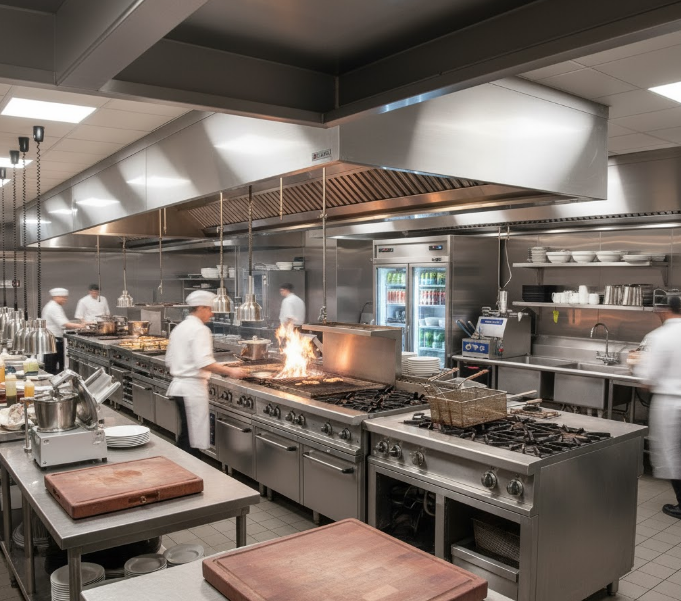
Outfitting your kitchen isn’t just ticking off a checklist of appliances. It’s more like fitting together gears in a big, unpredictable machine – and if one’s off, everything shudders. Whether you’re feeding twenty guests or two hundred, the kitchen equipment behind the scenes needs to run clean, fast, and without fail. And unless you enjoy gambling with service times, cutting corners isn’t really an option.
Going the wholesale route makes that a little less painful. A wholesale kitchen supply store gives you access to gear made for people who don’t have time for do-overs.
Why Going Wholesale Actually Works
There’s this assumption that wholesale just means “cheap.” But that’s missing the point entirely. It’s not only about getting lower prices – though sure, that helps when you’re buying six burners and a walk-in cooler in the same week.
What you actually get is:
- Tougher gear – Built to be used, abused, cleaned, and used again before sunrise.
- Wider selection – From oddly sized shelving to niche tools you didn’t know existed.
- Real-world support – Good wholesalers know the pressure you’re under; they don’t disappear after the invoice clears.
And let’s be honest, the idea of buying a $3,000 oven from a big-box retailer? That’s just asking for trouble.
The Must-Have Equipment List
Every chef has their quirks, but some things you just can’t work without. Doesn’t matter if it’s a café, food truck, or a full-service restaurant – there are essentials that form the spine of any serious kitchen.
If you’re putting together a restaurant kitchen equipment list, don’t skip the stuff below.
- Cooking gear – Griddles, charbroilers, ranges, ovens. Heavy-duty and high-capacity. Go light here, and you’ll regret it during Friday dinner rush.
- Cold storage – Reach-ins, walk-ins, under-counter units. They’ve got one job: keeping temp. If they can’t handle a humid lunch service, they’re useless.
- Prep equipment – Food processors, cutting surfaces, slicers. It’s all about speed and consistency – manual isn’t always noble.
- Dish & sanitation – You don’t get second chances with health inspectors. Triple sinks, high-temp dish machines, mop sinks – make them standard.
And don’t overlook small restaurant kitchen equipment. That 18-inch countertop griddle might seem minor until you’ve got six sandwiches to toast and no place to do it.
Picking the Right Supplier (Without Getting Burned)
Sorting through commercial kitchen equipment suppliers feels like a gamble. Some are gold. Others? Not so much. What you want is someone who acts more like a partner and less like a clearance bin.
Here’s what I always look for:
- They know their products – Not just specs, but real kitchen usage. If they can’t explain what makes one fryer better for high-starch menus, keep walking.
- Support doesn’t vanish – A good supplier won’t leave you hanging when your walk-in dies at 3am.
- Their warranty isn’t a maze – Straightforward terms. No fine print acrobatics.
A supplier that’s worked with a dozen restaurants like yours will save you more headaches than any “10% off” sale ever could.
The Stuff You Forget Matters, Too
The most frustrating costs are the ones you didn’t plan for. And they always pop up. That’s why I respect the wholesalers who ask the annoying-but-smart questions:
- What’s your average headcount?
- How many cooks are on the line?
- How tight is your pass?
They know your layout before recommending a single piece of gear. Some even throw in basic layout consulting or package discounts. I’ve seen operators survive by those little extras – and I’ve seen others fold because they didn’t ask early enough.
Wrapping It Up
There’s no glory in buying shiny toys that sit unused. Your kitchen has to work. It has to hum. And that starts with finding a wholesale restaurant equipment supplier who understands real-world cooking – someone who gets that service doesn’t wait for you to read the manual.
Get the essentials. Don’t cheap out on your foundation. And make sure the folks selling you the gear actually understand how it’s going to get used, spilled on, banged up, and still be expected to perform.
Because that’s what kitchens do. They push everything to the edge. Your equipment better keep up.